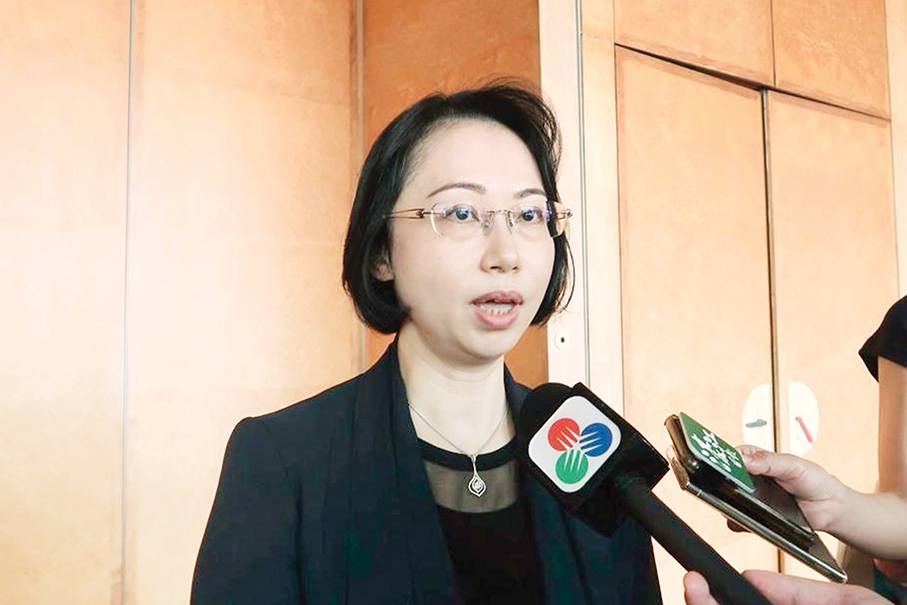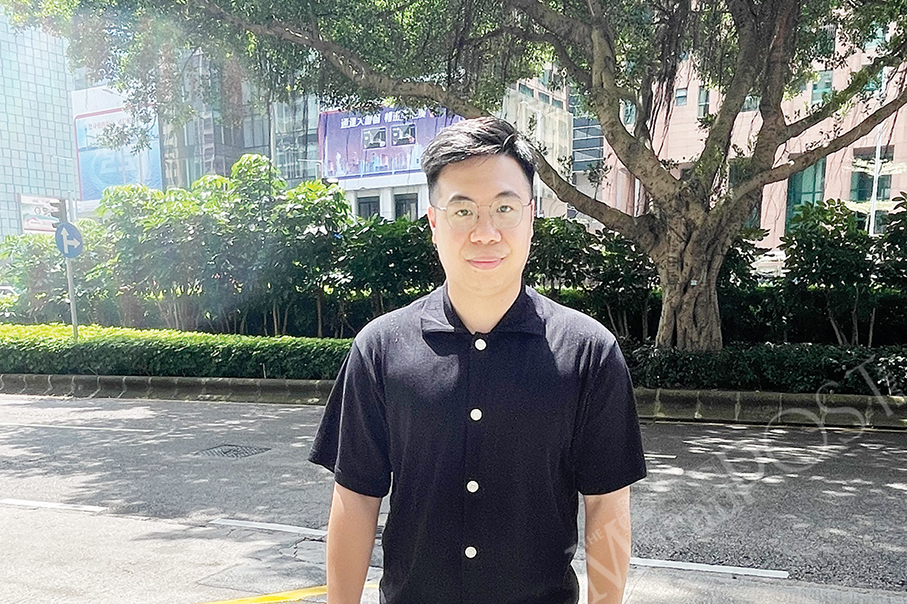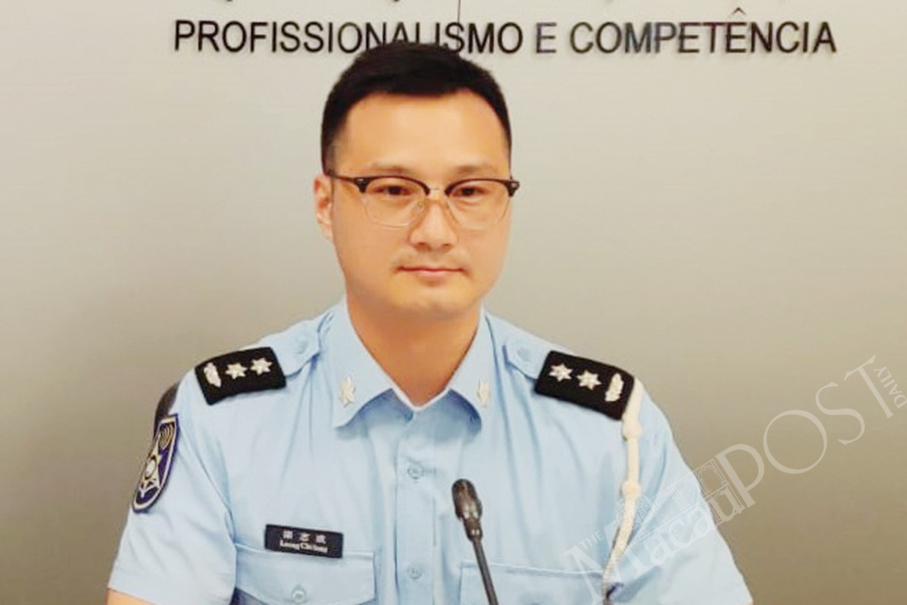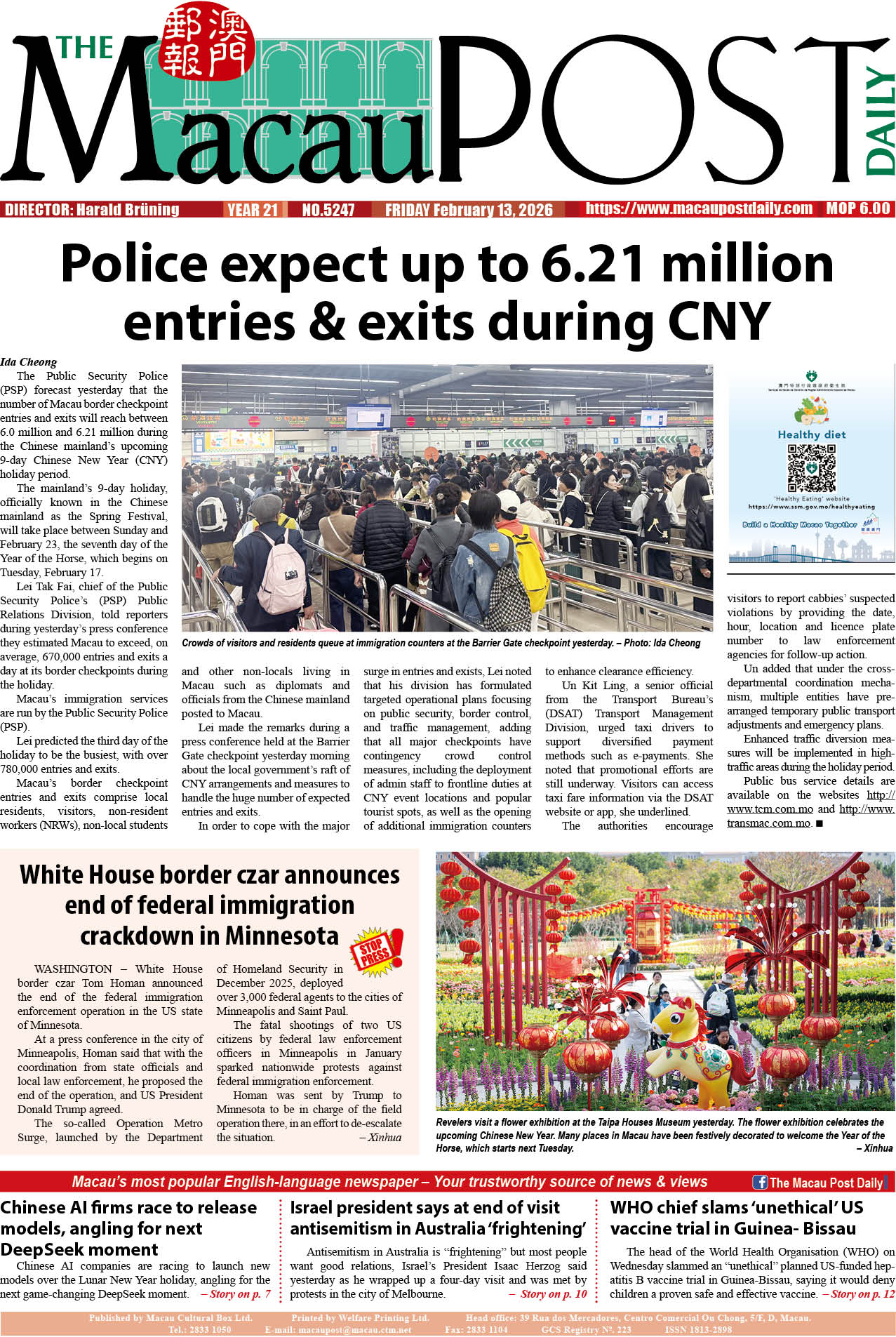Responding to local media queries about the operator of the wrecked Fukushima nuclear plant having recently started a trial operation of discharging nuclear-contaminated wastewater into the sea through an undersea tunnel, Municipal Affairs Bureau (IAM) Administrative Committee Vice President O Lam said yesterday that she was paying close attention to Japan’s planned discharge of radioactive wastewater from the 2011 Fukushima nuclear disaster into the ocean.
O also said that the bureau has maintained close contact with the General Administration of Customs (GACC) in Beijing and Macau’s neighbouring regions to follow up on the latest developments concerning the controversial discharge that has triggered international concern.
Japan announced its plan to gradually discharge more than a million tonnes of treated water from the crippled Fukushima nuclear plant.
O made the remarks to the media on the sidelines of yesterday’s “Experts Talks on 2023 World Food Safety Day and Food Safety” at the Macau Tower Convention and Entertainment Centre.
O stressed that once Japan starts to discharge nuclear-contaminated wastewater into the sea, the bureau will immediately expand the scope of suspension of import applications from Japan’s nine highest risk prefectures, including aquatic products, vegetables and fruit from Tokyo and Chiba, adding that she did not rule out the probability of imposing further requirements for other prefectures to export fresh food to Macau, with all needing to be accompanied by a radiation testing certificate. She also said that the fresh products could only enter Macau after passing relevant inspection and quarantine measures.
According to O, since the occurrence of the Fukushima Daiichi nuclear accident in 2011, the bureau has suspended the import of food products from Fukushima, while food products from the nine prefectures near Fukushima with the highest risk are subject to inspection and quarantine in accordance with the current type of import documentation and requirements, accompanied by a radiation monitoring certificate issued by Japan and a certificate of origin.
O underlined that the bureau will strengthen its testing of imported and commercially available food products in the local market, and increase the sample size and detection parameters of possible nuclear radiation levels in Japanese food products.
She reaffirmed that the proportion of fresh food imported to the local market from Fukushima and the nine highest risk areas nearby was “not high”, adding that Macau’s imports of Japanese aquatic products mainly come from the Ehime, Fukuoka, Hokkaido, Kagoshima and Nagasaki prefectures.
According to Wikipedia, the Fukushima Daiichi nuclear plant suffered major damage from a magnitude 9.0 earthquake and tsunami that hit Japan on March 11, 2011.

Municipal Affairs Bureau (IAM) Administrative Committee Vice President O Lam talks to the media on the sidelines of yesterday’s “Experts Talks on 2023 World Food Safety Day and Food Safety” at the Macau Tower Convention and Entertainment Centre.
– Photo courtesy of TDM









